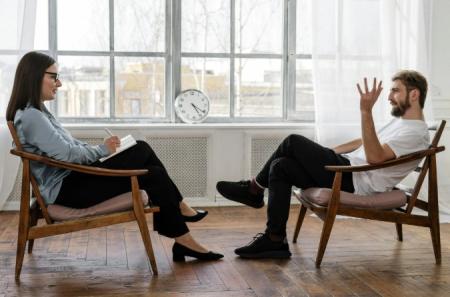Deciding to start therapy is a big step and a brave one. If you've been feeling uncertain about what to expect, you're in good company. Common questions often include: Do I have to share everything right away? Will the therapist judge me? Can I ask questions, too? The good news? These concerns are completely normal.
This article offers a friendly, real-world guide to what you can expect during your first session of psychodynamic psychotherapy in Sydney. It's not about being analyzed or "fixed" it's about opening a dialogue in a supportive, non-judgmental space.
Walking Into Your First Session
Therapy settings are intentionally calming, quiet, and private. There's no pressure to lie on a couch (unless you want to!). Most therapists simply invite you to sit comfortably and speak at your own pace.
Your first session typically starts with a few open-ended questions, such as:
- What made you decide to seek therapy now?
- What's been weighing on your mind lately?
- Are there challenges or emotions you've been managing for some time?
There's no need to rehearse. Honest, unfiltered answers help lay the groundwork for meaningful conversation.
What You Might Discuss Early On
During your first few sessions, the conversation might explore:
- Recent life transitions or stressors
- Patterns in your relationships or mood
- Lingering feelings from past experiences
It's completely fine if you're unsure where to begin. You don't need to tell your whole life story in one sitting. Even pauses or uncertainty can be valuable parts of the process.
When Deeper Themes Begin to Surface
As therapy progresses, deeper emotional patterns may start to emerge, such as:
- Persistent self-doubt or insecurity
- Struggles with setting boundaries or expressing anger
- Fear of abandonment or rejection
These aren't problems to "solve" immediately, but rather invitations to explore underlying emotional layers. Therapy offers a safe place to unpack and understand them, often for the first time.
The Process: Reflective, Not Rushed
Unlike quick-fix approaches, Cognitive Behavioural Therapy equips you with practical tools to manage emotions while also helping you understand how thought patterns influence your behaviour.
At the same time, psychodynamic therapy takes a deeper, more reflective route, encouraging insight into long-standing emotional dynamics and inner conflicts. This thoughtful combination can promote both immediate coping strategies and long-term change.
How You Might Feel Afterwards
People often leave their first therapy session feeling a mix of emotions, relief, reflection, even emotional fatigue. Whether you feel lighter or stirred up, both are valid. It means something meaningful was accessed, and that's a powerful starting point.
Looking Ahead: What Comes Next
Toward the end of your session, your therapist may:
- Reflect on the key themes you discussed
- Invite you to share how the session felt
- Explore whether you'd like to continue
- Suggest a general direction for future sessions
Building a strong therapist-client relationship takes time. Your first session is just the beginning, laying the foundation for trust, insight, and emotional growth.
Final Thoughts
If you're searching for support that goes deeper than surface-level advice, psychodynamic psychotherapy in Sydney offers a pathway to greater emotional clarity and self-understanding. Whether you're navigating anxiety, life changes, or relationship patterns, your healing journey can begin with one honest conversation.
This article was written by a compassionate mental health professional with experience supporting adults through evidence-based therapies. She offers a balanced approach, drawing from both psychodynamic therapy and Cognitive Behavioural Therapy, to help individuals explore emotional patterns, develop healthier coping strategies, and build stronger connections with themselves and others

